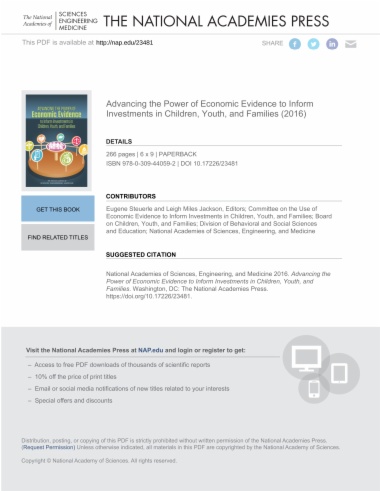

In recent years, the U.S. federal government has invested approximately $463 billion annually in interventions that affect the overall health and well-being of children and youth, while state and local budgets have devoted almost double that amount. The potential returns on these investments may not only be substantial but also have long-lasting effects for individuals and succeeding generations of their families.
Ideally, those tasked with making these investments would have available to them the evidence needed to determine the cost of all required resources to fully implement and sustain each intervention, the expected returns of the investment, to what extent these returns can be measured in monetary or nonmonetary terms, and who will receive the returns and when. As a result of a number of challenges, however, such evidence may not be effectively produced or applied. Low-quality evidence and/or a failure to consider the context in which the evidence will be used may weaken society's ability to invest wisely, and also reduce future demand for this and other types of evidence.
Advancing the Power of Economic Evidence to Inform Investments in Children, Youth, and Families highlights the potential for economic evidence to inform investment decisions for interventions that support the overall health and well-being of children, youth, and families. This report describes challenges to the optimal use of economic evidence, and offers recommendations to stakeholders to promote a lasting improvement in its quality, utility, and use.